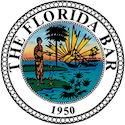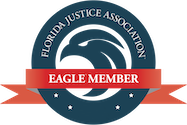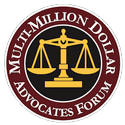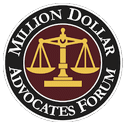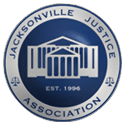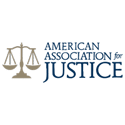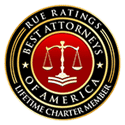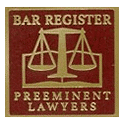Nursing Home Abuse Lawyer in Jacksonville
FREE CONSULTATION – NO OBLIGATION
Nursing home abuse lawyers can be an asset during one of life’s most trying times. There is no justification for you or a loved one to be victimized by nursing home neglect or abuse. Harrell & Harrell, P.A., has long been a community leader in the fight for nursing home patients’ rights. Over the years, our nursing home legal team has helped to draft legislation, lobbied for reform and testified before Congress and the Florida State Legislature regarding nursing home abuse and nursing home accidents. Our case leader Julie Harrell, in particular, is an exceptionally well qualified and experienced nursing home abuse lawyer.
Lawyer Julie Harrell
Julie is our leading nursing home abuse lawyer As a personal injury lawyer, she has taken a special interest in the elderly since the earliest stages of her practice. Having personally handled dozens of nursing home abuse and nursing home accident cases, Ms. Harrell brings a wealth of knowledge in regards to nursing home standards of care, daily nursing home operations and common nursing home defense strategies. She assists our clients seeking compensation for the recovery of damages from nursing home abuse and accidental nursing home deaths.
In the video shared on this page, Julie discusses how staffing problems at nursing homes, especially understaffing, can lead to nursing home neglect situations. She offers these tips if you are concerned about a loved one in a nursing home setting:
- Call the Florida Department of Children and Families at 800-962-2873 to get guidance on how to proceed.
- Contact Harrell & Harrell, P.A., to receive help in the investigation and remedy stages of your situation. You can contact us online or by calling 904-251-1111 or toll-free at 800-251-1111.
We take an aggressive, proactive role in working with governmental agencies, and nursing home and assisted-living facility care groups to eliminate abuse and nursing home neglect for future patients and their families. We are determined to be part of the solution for ending nursing home abuse of the sick and the elderly.
Nursing Home Reform Act
In 1987, nursing homes became required by law to provide the “highest practicable” degrees of care needed to achieve and maintain the physical, mental, and psychosocial well-being of residents. This act laid out basic rights that nursing home patients are entitled to, including:
- freedom from abuse, mistreatment, and neglect
- freedom from physical restraints
- privacy
- accommodation of medical, physical, psychological, and social needs
- participate in resident and family groups
- be treated with dignity
- exercise self-determination
- communicate freely
- participate in the review of one’s care plan, and to be fully informed in advance about any changes in care, treatment, or change of status in the facility
- voice grievances without discrimination or reprisal.
Whenever one of these basic rights is not met, the situation may be crossing over into nursing home neglect, perhaps even abuse.
You may wonder about the differences between nursing home neglect and nursing home abuse. They exist on a continuum of inappropriate situations, with neglect being a breach of duty that can result in harm to a patient. Nursing home abuse goes even further, with the implication being that the person or people involved actually intend to create harm. Because it isn’t always easy to determine when a situation crosses over from neglect to abuse, this can be a time to contact a nursing home abuse lawyer.
Warning Signs of Nursing Home Neglect or Abuse
If you suspect neglect or even abuse, sadly, you’re not alone. According to the National Council of Aging, elder abuse is significant in the United States, with one in every 10 older adults in our country (both inside and outside of nursing homes) having experienced some form of elder abuse. This means that the number of people suffering from this, in total, might be as high as five million each year.
Although no two scenarios are identical, most cases of elder neglect fall into one of these broad categories:
- medical neglect
- neglect of basic needs
- personal hygiene neglect
- social or emotional neglect
Abuse can fall into the categories of:
- physical abuse
- emotional abuse
- sexual abuse
- financial abuse
Under-reporting of elder abuse may be rampant, with one study cited by the National Aging Council showing that only one out of every 14 cases of elder abuse ends up being reported to authorities. Reasons why can range from memory problems experienced by the patient to an inability to articulate what is taking place. This can be exacerbated when loved ones can’t visit the nursing home as often as they’d like—plus, some types of abuse are easier to identify and therefore report than others. Physical abuse that leaves bruises or fractures, for example, can be much easier to notice than emotional abuse that only takes place when the patient is alone.
We’ve created an in-depth post to help you identify different types of neglect (which may also cross over into nursing home abuse). Red flags include:
- Unsanitary living conditions
- Personal hygiene concerns
- Nursing home staffing concerns
- Unanswered calls for help
- Nutrition concerns
- Complaints from your loved one
- Significant changes are taking place
- Increasing numbers of injuries, often unexplained
Nursing Home Abuse with Julie Harrell
Suspect Nursing Home Abuse? Steps to Take
Early on, you should share your concerns with the nursing home staff. Be specific about details, including when something happened and where. Ideally, this will alert the nursing home staff and help to get preventive measures put into place. You can also talk to your loved one’s primary care physician or social worker to enlist their aid. If you’re not satisfied with results, you can call the Florida Department of Children and Families at 800-962-2873 to get guidance on how to proceed.
If your loved one is ever in an emergency situation, perhaps after a serious fall, call 911.
No One Plans to Be a Nursing Home Abuse Victim
It happens in the most caring of families, so there is no reason to feel shame. In fact, if you or a loved one is are a victim of nursing home neglect, abuse, or accidental injury, you may be entitled to seek compensation for personal damages such as:
- Medical expenses incurred
- Damages for pain and suffering
- Damages for mental anguish
- Wrongful death of a loved one
- Funeral expenses for the victim
- Loss of care and family duties
- Loss of the victim’s earnings
Nursing Home Abuse FAQs
A: All states in the United States have systems in place for reporting neglect and/or abuse allegations and investigating the situation. The investigation will typically include interviews with the nursing home resident, family members, the nursing home staff, and any other relevant parties. If these complaints are found to be valid, remedies will put into place with the purpose of protecting the patient going forward. Or, it may make sense to move your loved one to another facility.
No matter which of these take place, you may still not feel satisfied with the remedies or feel that your loved one was appropriately compensated for harm done to him or her. In that case, you can contact a nursing home abuse attorney to inquire into bringing about a civil suit for damages. In some instances, this may lead to a criminal investigation and prosecution.
A: A resident living in a nursing home where Medicare payments are accepted is protected by the Nursing Home Reform Act of 1987, and is required by law to be protected against abuse, including physical, verbal, sexual, and mental abuse. If the nursing home in question is not regulated by federal statute, then the patient’s rights are determined by state law, which vary from state to state.
A: One or more of three situations might occur. First, an adult protective services agency might conduct an investigation and present findings. The goal of this is to provide fast relief to the victim and to prevent further harm from taking place. You may end up filing a civil suit (lawsuit) for damages; this is intended to compensate your loved one for neglect or abuse that took place. Finally, a criminal investigation and prosecution may occur, which takes place to punish criminal conduct.
A: This issue can arise if the nursing home resident had his or her resources used inappropriately for someone else’s advantage or profit. This is often in relation to the person’s money or property, especially when it’s taken without the patient’s consent, or is taken via deception or false pretenses, or the perpetrator uses duress or undue influence to get his or her way. State law varies on how exploitation should be defined in this context. Financial abuse is all too common and, if you feel this is occurring with your loved one, investigate and reach out for appropriate help.
A: There is no standard timeframe for the compensation process. We encourage you to contact us with specifics about your case.
Schedule a Free Consultation With a Nursing Home Abuse Lawyer
When nursing home abuse occurs, it is important to accurately document the events surrounding the patient’s abuse and/or accidental death. At Harrell & Harrell, P.A., we understand this can be a very trying time in your family’s life. That’s why we can arrange for a private consultation at our office, your home or hospital room to discuss the specific details of your nursing home abuse case. Your family doesn’t have to go it alone. When you work with our qualified nursing home abuse lawyers, you gain the experience of our entire personal injury law firm. Use our website’s convenient contact form for a prompt, private email response to your questions.
You can also find information about settlements we’ve won for our clients. These include one where an elderly client was awarded $700,000. She had suffered from multiple bed sores because of lack of repositioning and improper wound care, as well as numerous falls that led to bruising and fractures due to a lack of supervision.
Remember: You never have to face a nursing home or its big insurance company alone. Call Harrell & Harrell, P.A., today at 904-251-1111 or 1-800-251-1111 to schedule a free, no-obligation consultation with our nursing home abuse lawyers.
Harrell & Harrell Personal Injury Lawyers Specialize in Nursing Home Abuse
Don’t settle for less than you deserve.®
We’re With You When You Need It Most.
In the hours after an accident, there can be a lot of questions about what to do next. The insurance company will be pressing you for a response. Do you know who you would trust?
You don’t have to walk through this alone.
Focus On
Healing
At Harrell and Harrell, we understand your number one priority is getting better as quickly as possible. And while you’re healing, our lawyers and paralegals work tirelessly to take care of everything else.
Provide
Clarity
The legal system can be intimidating. Our team will be by your side, every step of the process to answer questions and champion for your rights.
Negotiate With
Insurance Company
We communicate with the insurance companies on your behalf and are with you every step of the way.

Helping Where It Counts
We Are a Law Firm That Gets Results
Our client, an off-duty law enforcement officer, was riding his motorcycle on a rural two-lane county road when a young woman driving a car made a sudden left-hand turn across his path. Our client sustained a burst fracture at T-12...Read More
A twice-convicted sexual predator moved from New York and applied for a maintenance position at a Florida trailer park. The management staff failed to perform an adequate background check on the pedophile, and he was left to roam around the...Read More
Our client was a young man driving his small pickup truck over the Shand's Bridge when a dump truck driver collided with him head-on, resulting in a mild traumatic brain injury. This was the largest verdict in Clay County's history.Read More
A railroad conductor riding the leading edge of a train was pinched between the train and a dump truck when the truck driver failed to yield the right of way. This Tampa Conductor lost one leg and lost use of...Read More
Our client, a 49-year-old mortgage broker, suffered a mild traumatic brain injury when the defendant failed to yield the right of way at an intersection and broadsided our client's car.Read More
Male driver was involved in a head-on collision. Defendant denied liability based on alleged syncope by employee driving their vehicle. Client had three orthopedic surgeries followed by several weeks of in-patient rehab. Outstanding verdict was awarded for expenses, wage claim...Read More
A 75,000 pound (4.5 tons overweight) garbage truck, at an estimated speed of 65 mph, swerved out of its lane hitting our clients' vehicle head-on. The accident caused the death of a young mother and injury to her teenage daughter.Read More
At the home of her babysitter, a three-year-old girl was left unattended and was mauled by three dogs. Although she miraculously survived, she was left with devastating injuries. The mobile home community claimed that it did not have any knowledge...Read More
A middle-aged business executive was returning to her vehicle from a concert when an automatic parking arm fell and hit her head, neck, shoulders, and back. While our client never lost consciousness, this accident caused a traumatic brain injury that...Read More
A Miami conductor was injured when the switch he was operating hung up during the course of switching. The jury found the railroad liable for violating numerous federal regulations of switch & track maintenance. An injured rotator cuff and torn...Read More
Our client hit his head in a collision with another child while playing a game of "Capture the Flag" in the dark during a weekend school field trip. The school supervisors failed to seek treatment for our client's head injury...Read More
female bridge tender operating a drawbridge over the Manatee river was attacked when she showed up for work. The poor lighting and the poor security provided by the railroad led to the attack and injuries to the face, head, knee...Read More
While traveling to work in the early morning, a truck driver ran into our client's vehicle; she never lost consciousness. Our client, who had experienced a previous psychiatric illness, suffered a mild traumatic brain injury from the collision, leaving her...Read More
A Navy serviceman was rear-ended at an intersection by a driver traveling 66 mph. The impact pushed his truck across the intersection into a utility pole. The serviceman lost consciousness and was hospitalized. Diagnostics confirmed a herniated disc requiring permanent...Read More
On a four-lane road, our client was side-swiped by a commercial truck driver. Her vehicle crashed into a ditch where she hit a tree, leaving her with a traumatic brain injury and blindness in both eyes.Read More
An EMT was injure in the back of an ambulance when thrown into shelves during an accident. Two low-back surgeries and the implantation of a pain stimulator device were required. Case settled during second day of the trial.Read More
A 78 year old retired, white male was knocked off of the road when a pickup truck with trailer carrying logs jacked knifed and hit his car. He suffered a compression fracture at T-12, a right knee hematoma, and subsequently...Read More
Our client had stopped behind a school bus when a tractor trailer slammed into him going approximately 40 mph. The force of the collision caused our client to suffer a traumatic brain injury with impairment of cognitive brain function.Read More
The defendant driver stopped in the middle of a road at 3:00 a.m. with no lights. The vehicle carrying our seven-week-old client collided with the defendant's vehicle. The newborn baby suffered a linear skull fracture and a traumatic brain injury...Read More
Woman broke her left wrist due to slippery hardwood floor in a local restaurant. Defendant refused to acknowledge responsibility for the accident. Almost half of the jury's award was for pain & suffering damages.Read More
A CSX backhoe operating northbound on Highway 301 was struck from behind by a speeding mail carrier. The backhoe operator suffered a broken collarbone, severe lacerations to his forearm and post traumatic stress disorder. (Last offer from the insurance company...Read More
Medical malpractice claim due to gauze pads left in the client's scrotum during a vasectomy reversal procedure. Jury awarded verdict.Read More
Our client, a sixteen year old girl, was a front seat passenger in a vehicle when the driver lost control of his car and hit a telephone pole. The driver was a minor and under the influence of alcohol at...Read More
An elderly man suffered a traumatic brain injury when he was beaten with a case by his roommate in an assisted living facility. Numerous reports were made pertaining to the violent behavior of our client's roommate prior to the incident.Read More
When walking home from work, a registered nurse at Shands Hospital was hit by a drunk driver whose blood-alcohol level was three times the legal limit. Earlier in the day, the defendant sat at a bar where a bartender continuously...Read More
An elderly lady suffered from multiple bedsores due to lack of turning and repositioning and improper wound care by nursing home staff. She also endured multiple falls resulting in bruising and fractures from lack of restraint and supervision. The Department...Read More
Deceased's was killed in an apartment fire. The rental unit had bars over the windows which prevented the departed from escaping the fire. Zero dollars offered prior to jury verdict.Read More
Nursing staff performed an improper urinary catheterization while caring for an elderly gentleman. This failure in standard care and subsequent failure to identify and seek treatment led to a urinary tract infection, sepsis and death. The children were not informed...Read More
Army recruiter for close to 18 years was rear-ended on I-10 with injuries requiring shoulder surgery. The injury prevented him from passing mandatory physical causing his medical release prior to his full 20 years. After we were able to prove...Read More
An elderly gentleman who was living independently was admitted to this nursing home for rehabilitation for a fractured hip. The nursing home failed to provide any turning and repositioning of this gentleman which resulted in a large bedsore to his...Read More
Military serviceman's vehicle was rear-ended by a commercial pest-control vehicle. Client was medically discharged from the military due to his injuries. The insurance carrier settled prior to the trial.Read More
Female driver was rear-ended by a tractor trailer on I-95. The client underwent an arthroscopic shoulder surgery with pain management treatments for her neck and lower back. Trucking company lawyers argued that the client had pre-existing conditions. Settlement reached after...Read More
A young single mother was stopped in traffic when a truck rear-ended her. The significant force of the collision caused a permanent herniated disc in the woman's neck. To help reduce the pain, doctors recommended periodic cervical epidural injections over...Read More
An 18-year old woman developed neck and back pains following a rear-end collision. After two-years of treatment (medical bills totaled less than $20,000), a Clay County jury awarded compensation for chiropractic care for the rest of her lifeRead More
Our Firm represented a class of individuals against their employer for failure to pay overtime wages as required by Federal Law. The lawsuit settled shortly after certification of the class.Read More
Our client, a mother with two children while heading home from work was crashed into when a negligent driver ran a red light. Our client was taken to the hospital with life-threatening injuries where she underwent numerous surgeries for internal...Read More
Honors and Recognitions
